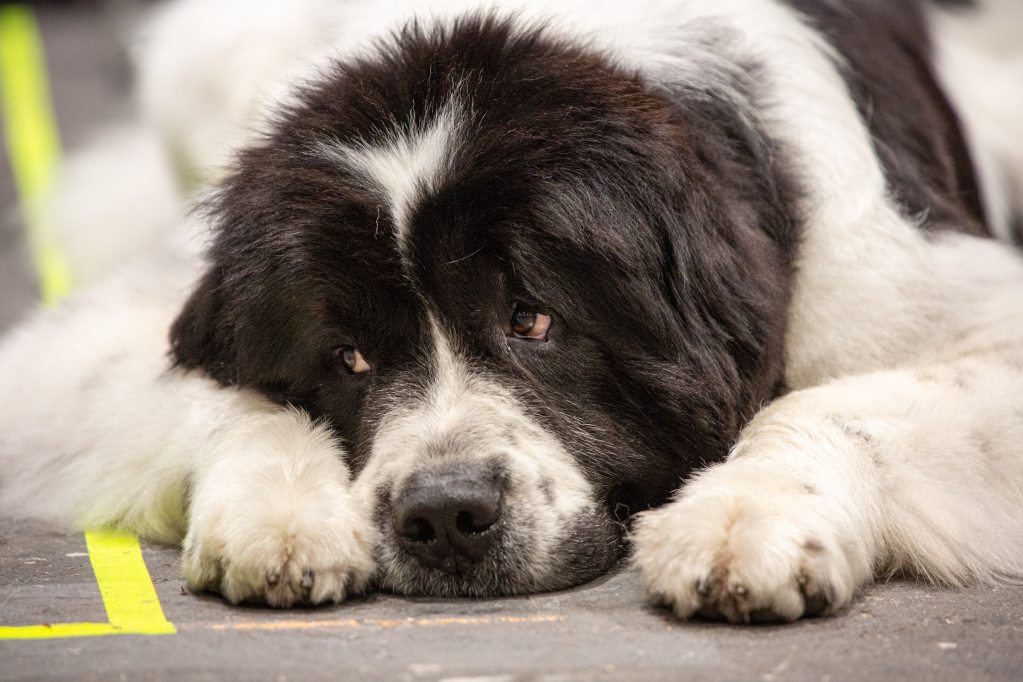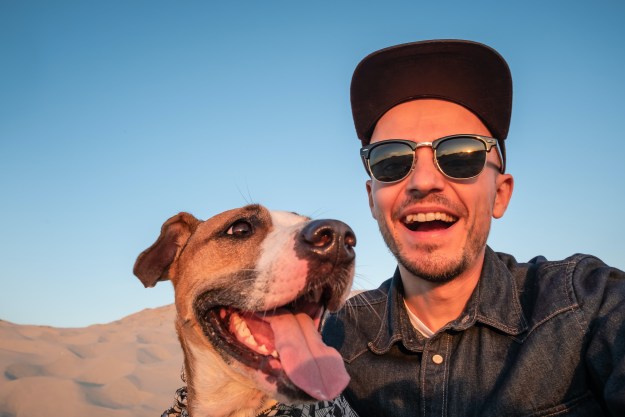Large dogs can be intimidating to some, but the truth is that many of them are as sweet as can be — especially with children! Although it may sound surprising, we’ve all heard the term “gentle giant” used to describe large dog breeds like Great Danes and Saint Bernards. It should come as no surprise that they can be great with kids with a reputation like that, but they’re not the only family dogs out there!
- Great Danes are famous for their ‘gentle giant’ nature
- Staffordshire Bull Terriers have a history of caring for children
- Bernese mountain dogs are just as sweet as they are beautiful
- German shepherds can keep children occupied, safe, and happy.
- Newfoundlands’ most valued trait is their gentle disposition.
- Leonbergers just might be the largest companion dogs on earth!
These five big dog breeds make wonderful pets for anyone with kids. They have a history of being patient and gentle with children, and they all respond well to positive reinforcement training. With the right amount of attention and love, any of these dogs can be your child’s best friend.
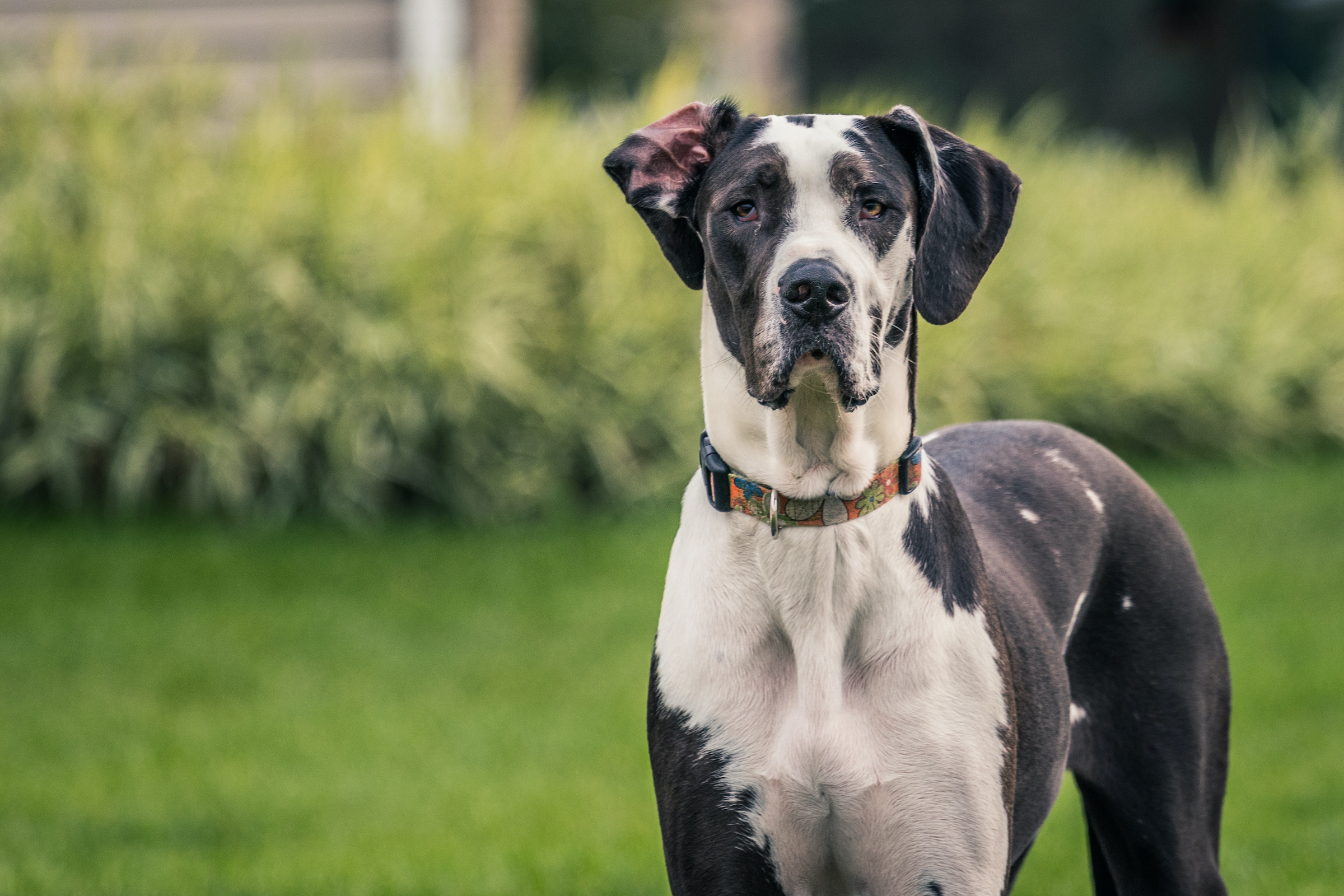
Great Danes are famous for their ‘gentle giant’ nature
Great Dane dogs are known for being the largest dog breed in existence — but they’re also one of the sweetest. Though they’ll happily watch over their homes, Hill’s Pet notes that Danes are “moderately playful” and “affectionate.” Their energy level is somewhat limited, so they will be happy with a backyard and about 30 minutes of daily exercise. The only downside is that this breed only lives for about 6 to 8 years, on average. Losing a family pet can be difficult for a young child, and for their parents, too.
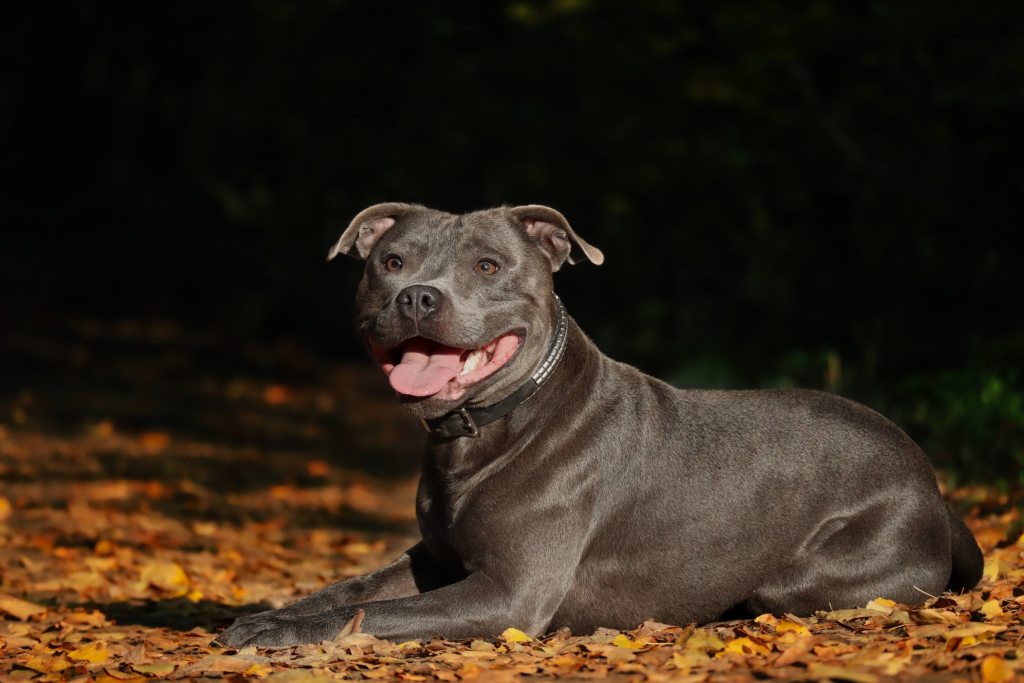
Staffordshire Bull Terriers have a history of caring for children
Despite the negative stereotypes pit bull breeds have faced, the Staffordshire Bull Terrier has a long history as a loving family pet. In fact, these dogs were known as “nanny dogs” in England because of their playful, protective nature toward children. Plus–there’s no doubt that Staffies love to play. They were even built to be sturdy playmates — just look at those stocky bodies! Hill’s Pet explains that turning training into play (using positive reinforcement with rewards) is the best way to practice obedience with this breed. Here’s a hint: positive reinforcement training is best for just about any dog!
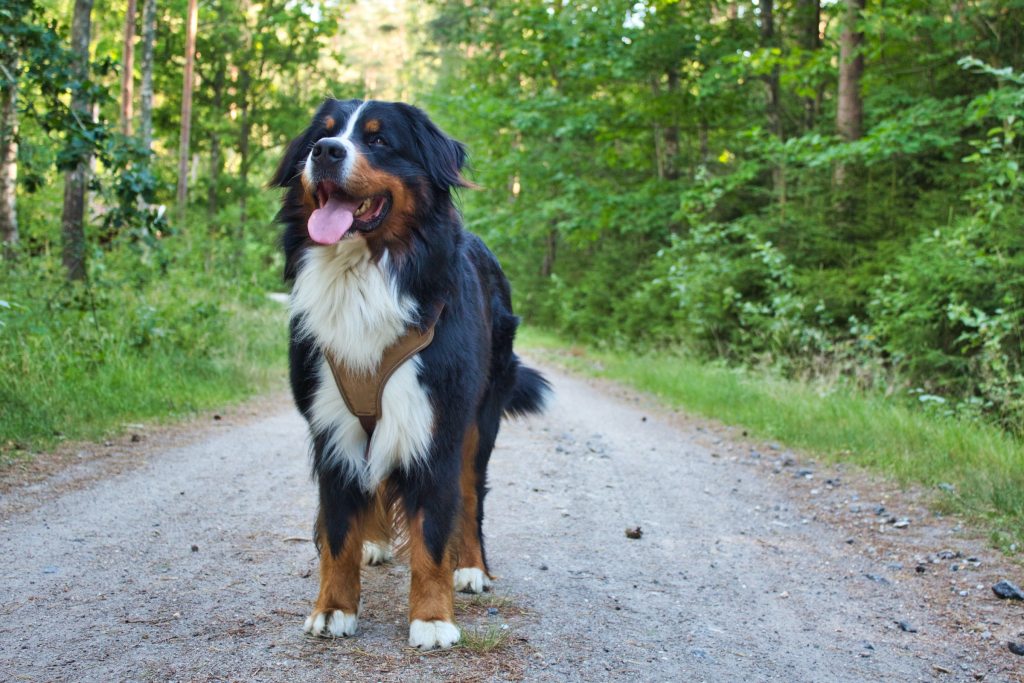
Bernese mountain dogs are just as sweet as they are beautiful
This gorgeous breed is known for its elegant look and distinctive fur coloring, but don’t let that massive size fool you. Bernese mountain dogs are some of the most sensitive pups you can find. They’re extremely affectionate, notes Purina, and they’ll usually choose a good cuddle over a walk around the block. Still, these dogs do have moderate exercise needs. Playtime can help with that!
Berners don’t love to be alone and can be aloof with strangers, so you’ll have a loyal family dog if you choose this breed. Their gentle, patient natures will mesh well with young kids’ playful personalities, too.
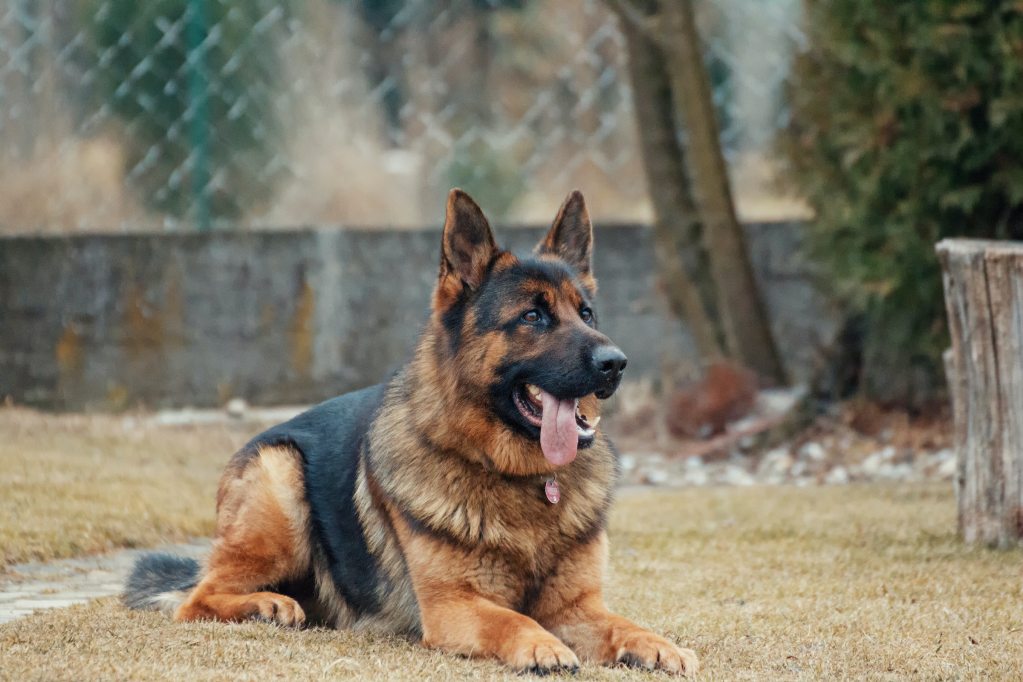
German shepherds can keep children occupied, safe, and happy.
Even though German shepherds are known for their tough-looking exterior, they can be just as gentle and affectionate as any other breed; especially with the right training. Their higher energy level can make them great companions for older children or budding athletes, and they can be wonderful guardians for kids who aren’t in the eyesight of their parents. This breed shows loyalty to a T!
Newfoundlands’ most valued trait is their gentle disposition.
Even though these dogs come with a lot of fur to maintain, they also come with a lot of love to give. If anything, your Newfie’s regular grooming can be a way to teach a child about responsibility! Whether they’re around adults, children, or other dogs, Newfoundlands are affectionate and difficult to anger. That’s why they’ve earned the title of “nanny dog,” too! According to the American Kennel Club, the Newfoundland breed standard values their sweet temperament over any other characteristic — even looks.
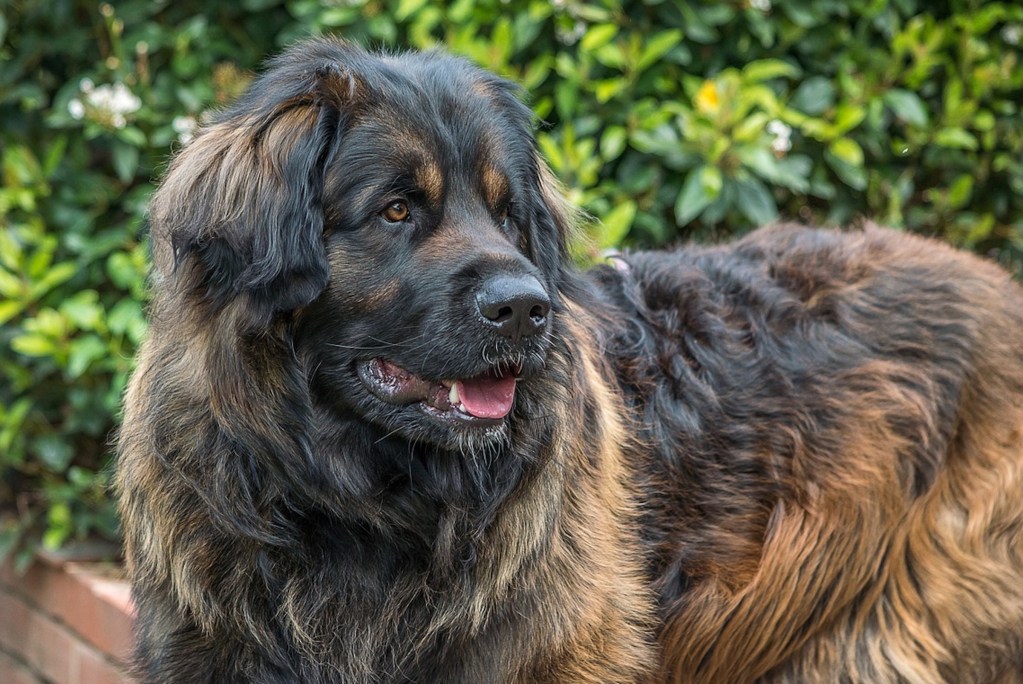
Leonbergers just might be the largest companion dogs on earth!
Leonbergers are massive dogs–weighing up to 170 pounds–but couldn’t be more eager to spend time with their family. They are true love bugs! These sensitive dogs are known for their gentle demeanor and neverending loyalty, though their impressive physical stature sure doesn’t hurt. In fact, their size made them a popular choice among European royalty, though now these dogs are better known for being therapy animals or search-and-rescue dogs.
Their driven nature makes them easy to train and incredibly loyal. With this dog breed around, there will be no doubt that your child will have a big, friendly buddy by their side at all times.
If any of these big dog breeds caught your eye, don’t hesitate to learn more about them. They just might be the best fit for your family. Even if your ideal dog breed isn’t on this list, though, don’t feel discouraged. There are dogs for everyone out there. Good luck!
Editors' Recommendations
- Are ‘dog years’ really 7 human years? How to calculate your dog’s age
- 7 affectionate and cute dog breeds for owners who love to cuddle
- Where to put a dog crate in your house depends on these important factors
- Could it be a dog paw infection? Signs, symptoms, and treatments for these pesky, painful issues
- Is your puppy breathing fast while sleeping? Here’s when you should worry and how to help your dog

